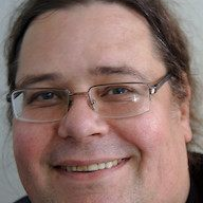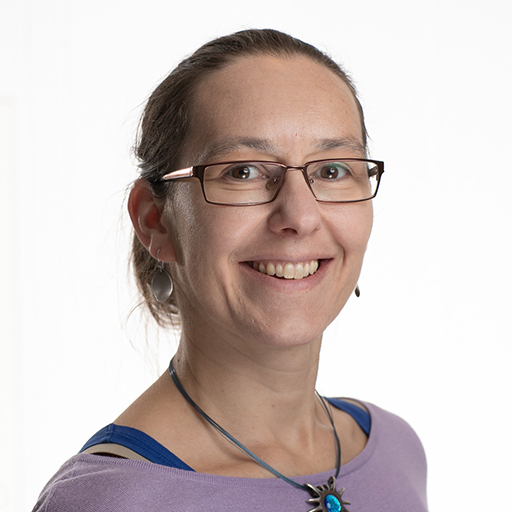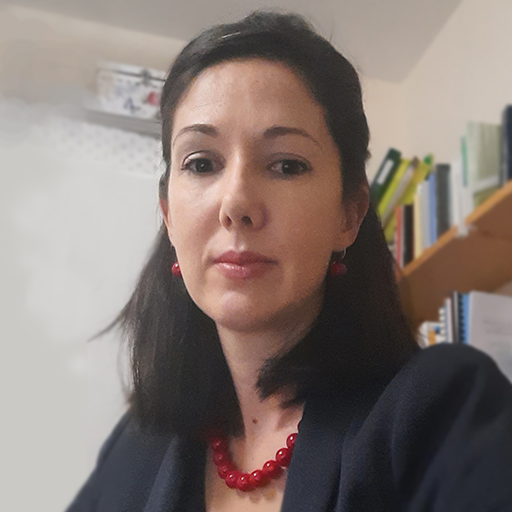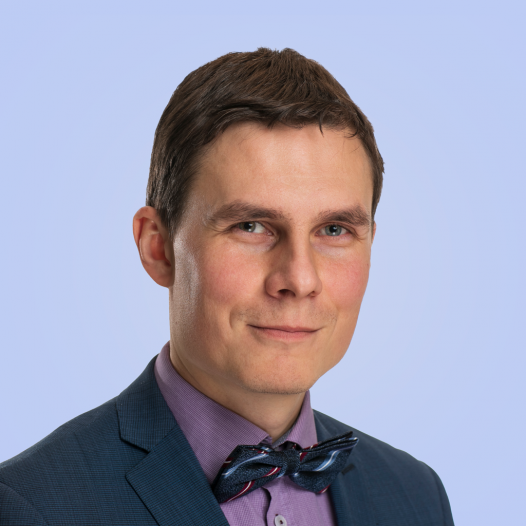Doctoral Consortium
The EC-TEL Doctoral Consortium brings together PhD candidates working on topics related to Technology-Enhanced Learning providing them an exceptional opportunity to present, discuss, and receive feedback on their research in an interdisciplinary and international atmosphere. Prominent professors and researchers in the field of Technology-Enhanced Learning will provide formative feedback to the selected papers through the review process and contribute actively to discussions at the workshop.
Proceedings of the ECTEL2021 Doctoral Consortium
Mikhail Fominykh and Maria Aristeidou eds. “Proceedings of the Doctoral Consortium of the Sixteenth European Conference on Technology Enhanced Learning (DCECTEL 2021) co-located with the Sixteenth European Conference on Technology Enhanced Learning (EC-TEL 2021) ,” Virtual Event, Bolzano, Italy, September 20–21, 2021,  CEUR workshop proceedings, ISSN: 1613-0073, Vol-3076.
CEUR workshop proceedings, ISSN: 1613-0073, Vol-3076.
Who can apply
The intention of this doctoral consortium is to support and inspire PhD candidates during their ongoing research efforts. Therefore, we will consider applications from PhD candidates who:
- have started to work on a PhD before the doctoral consortium
- have neither achieved their PhD degree nor officially submitted their thesis before the doctoral consortium
- have the topic of their work within the Technology-Enhanced Learning domain
- have good reading and writing English skills
Application process
1. Doctoral Consortium paper
- Write about your PhD research!
- The length of the Doctoral Consortium paper is 5-10 pages.
-
Use the supplied CEUR template.
-
Create a submission and upload the paper to EC-TEL EasyChair.
-
(optional) All accepted Doctoral Consortium papers can prepare a poster about their PhD and participate in the EC-TEL 2021 poster session.
2. Application form
PhD candidates are requested to complete the EC-TEL Doctoral Candidate application form. Time required: 5 minutes.
Doctoral Consortium paper
Elements to be addressed in the EC-TEL Doctoral Consortium paper
- A clear formulation of the research question
- An identification of the significant problems in the field of research within the TEL domain
- An outline of the current knowledge of the problem domain, as well as the state of existing solutions
- A presentation of any preliminary ideas, the proposed approach and the results achieved so far
- An outline of the applied research methodology
- A description of the PhD project’s contribution to the problem solution in the TEL domain
- A discussion of how the suggested solution is different, new, or better as compared to existing approaches to the problem
Proceedings of the previous EC-TEL Doctoral Consortia
Review and publication
The accepted Doctoral Consortium papers will be published in CEUR Workshop proceedings: ceur-ws.org. The participants will have the opportunity to improve their papers in response to the reviews and based on the feedback they received during the Doctoral Consortium.
All submissions will be reviewed by at least three senior researchers.
Important dates
- 31 July 2021 – PhD candidate application deadline
- 28 August 2021 – Doctoral Consortium reviews
- 20-21 September 2021 – EC-TEL 2021 Doctoral Consortium
- 20 October 2021 – Camera-ready version of the improved submission
- 20 November 2021 – Expected publication date
Program of the EC-TEL Doctoral Consortium
DAY 1
20 September 2021
13:30-17:30 CEST
Welcome address
13:30 CEST
In the welcome address, the Doctoral Consortium chairs and EATEL board representatives will present the doctoral education activities at EATEL and present the program of the event.
Doctoral Consortium keynote "From communities of practice to nationwide learning infrastructure - An itinerary"
13:40 CEST
Ralf Klamma
RWTH Aachen University, Germany
Ralf Klamma leads the research group “Advanced Community Information Systems” (ACIS) at the Information Systems chair, RWTH Aachen University (Germany). He is known for his work in major EU and national funded projects for Technology Enhanced Learning (PROLEARN, GALA, ROLE, Learning Layers, TELMAP, Tellnet, CUELC, SAGE, BOOST, VIRTUS, WEKIT, tech4comp, MILKI-PSY and MyEduLife). Ralf organized […]
Abstract. Social learning theories like communities of practice are dominating the research on informal learning, in particular on workplace learning. Recently, major investments in digital infrastructures for learning were made due to the major need for digitalization but also because of the COVID-19 pandemics. Still the question remains, how can communities of practice find a homestead on large-scale infrastructures mainly built for formal and institutional learning providers? Appropriation of cloud-based learning platforms, creative use of existing open-source development tools, consideration of participative design methods and community-oriented assessment are puzzle pieces of an emerging scenario of communities of practice infrastructuring, Examples from ongoing projects and a forthcoming research will illustrate the findings.
Presentations of the PhD candidates
14:30 CEST
The participating PhD candidate will each have 20 minutes in total for a presentation of their PhD project and/or their doctoral consortium paper AND a discussion. We strongly recommend to keep the presentation to 10 minutes, so that the discussants and the audience have enough time to provide feedback.
Informal workshop on academic writing and publishing
16:50 CEST
After a brief introduction of the topic and the most common challenges, we will openly and informally discuss the topic. The PhD candidate will be able to ask any related questions, ask for advice and recommendation or solutions to specific problems.
DAY 2
21 September 2021
08:30-12:30 CEST
Speed Mentoring
08:30 CEST
Speed mentoring is a dynamic session that allows PhD candidates to receive quick feedback and answers from multiple senior researchers in a short time. Each senior researcher will join a breakout room for the entire session, while the PhD candidates will switch rooms every 5 minutes.
Presentations of the PhD candidates (continues)
09:00 CEST
This is the continuation of the PhD candidate presentations. The same format will apply. Each PhD candidate will have 10 minutes for a presentation and immediately after each presentation – another 10 minutes for a discussion and feedback.
Informal workshops on Research methods
12:00 CEST
Design Based Research in TEL
Viktoria Pammer-Schindler
Graz University of Technology
Viktoria Pammer-Schindler is an associate professor at Graz University of Technology, and a research area head at the Know-Center, a non-for profit research organisation. Her research is on designing and evaluating socio-interventions for workplace learning and knowledge work; and sits at the intersection of technology-enhanced learning, human-computer interaction and information system research.
Qualitative Research in TEL
Maria Victoria Soule
Cyprus University of Technology, Cyprus
María Victoria Soulé is a Spanish Language Instructor and Researcher at the Language Centre of the Cyprus University of Technology. She completed her BA in Classical Studies at the University of Barcelona, an MA in teaching Spanish as a Foreign Language from Universidad Complutense de Madrid, an MPhil in Spanish Applied Linguistics and a PhD […]
Committee
Maria Aristeidou, The Open University, UK
Ana Benavides Lahnstein, Natural History Museum, UK
Tim Coughlan, The Open University, UK
Monica Divitini, Norwegian University of Science and Technology, Norway
Mikhail Fominykh, Norwegian University of Science and Technology, Norway
Davinia Hernández-Leo, Universitat Pompeu Fabra, Spain
Garron Hillaire, Massachusetts Institute of Technology, USA
Ralf Klamma, RWTH Aachen University, Germany
Roland Klemke, Open University of the Netherlands
Birgit Krogstie, Norwegian University of Science and Technology, Norway
Birgy Lorenz, Tallinn University of Technology, Estonia
Kalpani Manathunga, Sri Lanka Institute of Information Technology
Daniele di Mitri, Leibniz Institute for Research and Information in Education, Germany
Ekaterina Muravyeva, Open University of the Netherlands
Zacharoula Papamitsiou, Norwegian University of Science and Technology, Norway
Khalid Md. Saifuddin, Technical University of Denmark
Mar Pérez-Sanagustín, Computer Science Research Institute of Toulouse, France
Mohsen Saadatmand, University of Helsinki, Finland
Maren Scheffel, Ruhr University Bochum, Germany
Jan Schneider, Leibniz Institute for Research and Information in Education, Germany
Natalia Spyropoulou, Hellenic Open University, Greece
Fridolin Wild, The Open University, UK
Doctoral Consortium chairs
Mikhail Fominykh
Norwegian University of Science and Technology, Norway
Mikhail Fominykh is a researcher, developer and enthusiast in the area of technology-enhanced learning. Mikhail is serving as a Secretary and as the Education chair in the executive board of EATEL from 2021 to 2025. Mikhail holds a researcher position in the IMTEL research group at the Norwegian University of Science and Technology – NTNU, […]
Maria Aristeidou
The Open University, UK
Maria Aristeidou is a Lecturer (Assistant Professor) in Technology Enhanced Learning and a Fellow of the Higher Education Academy (FHEA) at The Open University, UK. She is a mixed-methods researcher that combines expertise from the Education, Human-Computer Interaction and Citizen Science fields. The main focuses of her research are the design and evaluation of engaging […]






